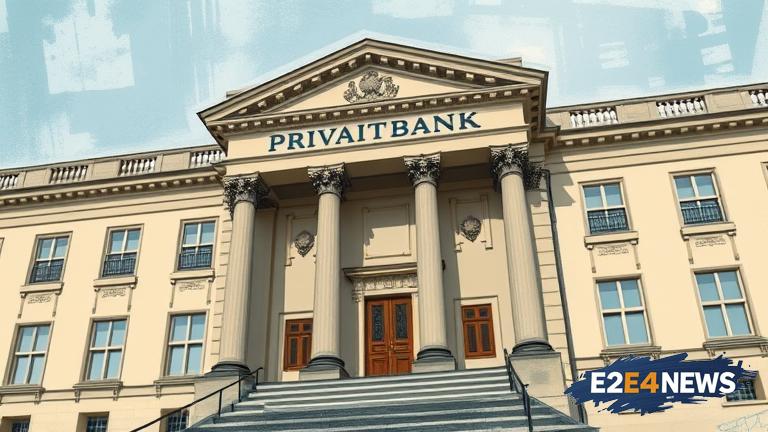In a groundbreaking decision, a UK court has ordered the former owners of Ukraine’s PrivatBank to repay a staggering $1.9 billion in a fraud case that has sent shockwaves through the global financial community. The verdict marks a major victory for PrivatBank, which was nationalized by the Ukrainian government in 2016 following the discovery of a massive $5.5 billion hole in its finances. The court’s ruling is the culmination of a lengthy and complex legal battle that has spanned several years, with PrivatBank’s former owners, Ihor Kolomoisky and Gennadiy Bogolyubov, accused of orchestrating a large-scale fraud scheme that involved the misuse of billions of dollars in loans. The scheme, which was allegedly carried out through a network of shell companies and offshore accounts, allowed Kolomoisky and Bogolyubov to siphon off vast sums of money from the bank, leaving it on the brink of collapse. The UK court’s decision is a significant blow to the former owners, who have consistently denied any wrongdoing and claimed that the allegations against them are politically motivated. However, the court’s ruling suggests that the evidence presented by PrivatBank’s lawyers was compelling, and that the former owners’ actions were indeed fraudulent. The case has far-reaching implications for the global financial sector, highlighting the need for greater transparency and accountability in the banking industry. It also serves as a warning to those who would seek to exploit loopholes and weaknesses in financial regulations for personal gain. The verdict is a major victory for Ukraine’s banking sector, which has been working to rebuild trust and stability in the wake of the PrivatBank scandal. The Ukrainian government has welcomed the decision, hailing it as a significant step forward in the country’s efforts to combat corruption and ensure that those responsible for financial crimes are brought to justice. The case has also sparked renewed calls for greater international cooperation in the fight against financial crime, with many experts arguing that more needs to be done to prevent the misuse of shell companies and offshore accounts. As the former owners of PrivatBank consider their next move, it is clear that the UK court’s decision will have significant repercussions for the global financial community. The case serves as a reminder that financial institutions and their owners can be held accountable for their actions, and that the rule of law will be upheld. The verdict is also a testament to the strength and resilience of Ukraine’s banking sector, which has faced numerous challenges in recent years. Despite these challenges, the sector remains committed to transparency, accountability, and the highest standards of governance. As the dust settles on this landmark case, it is clear that the implications will be felt for years to come. The UK court’s decision will be closely watched by financial institutions and regulators around the world, and will likely serve as a model for future cases involving financial fraud. The case has also highlighted the importance of international cooperation in the fight against financial crime, and the need for greater transparency and accountability in the banking industry. In conclusion, the UK court’s decision is a significant victory for PrivatBank and the Ukrainian government, and marks a major milestone in the global fight against financial crime. The case serves as a reminder that financial institutions and their owners can be held accountable for their actions, and that the rule of law will be upheld. With its far-reaching implications and significant repercussions, this landmark case will be remembered for years to come.
